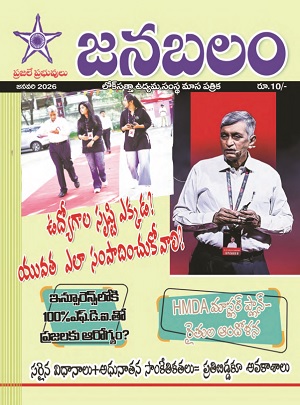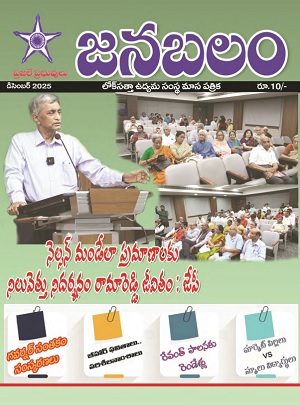10th January 2020
Two years from now, in 2022, India will celebrate its 75 years of Independence and in another three years thereafter the nation will celebrate 75 years of its life as a democratic republic. For a nation ravaged by centuries of caste-based inequalities, religious divisions, feudal privileges and colonial rule, it has been an arduous journey in making democracy work. In these years, the people wrestled with multiple goals and challenging tasks, including the task of nation building, ensuring social justice, and working for economic development and achieving them all through democratic political framework. In the western democracies these tasks were carried out sequentially and over centuries. India is called upon to manage this transition quickly without the material foundations that the western nations possessed.
That India with a highly plural society and a burgeoning population with relatively low levels of income could endure as a nation and a functioning democracy is a tribute to the wisdom, commitment and hard work of its people. India’s democracy today is a real, vibrant and stable. Like the peepal tree, it struck its roots deep and wide. People choose leaders and remove them in relatively free, fair regular, periodic elections. They have access to sources of information that are not controlled by the government. They are free to express their views without fear of being punished by the government, free to form and join associations and engage in political activity to influence public policy. Political parties have the right to propagate their ideas and openly seek public support. Elected government exercise real authority and are accountable to the electors.
However, India’s democracy is still a work in progress. We have a long way to go. Mere freedom of speech and expression and the right to vote are not enough for a good life. Democracy requires intricate mechanisms to establish links between individual interest and collective well-being, between demands for welfare and imperatives of development, between the taxes paid and services received, and most of all between the authority exercised and accountability enforced. Alongside what India has achieved in these seven decades after independence, there are also several features of how India’s democracy works that are a cause for concern. These are the democratic deficiencies that need to be immediately addressed and tackled by citizens of India.
One such major issue is the flood of money and the heavy presence of the members of the moneyed classes in the legislatures. There is nothing objectionable if wealthy people choose to enter politics and work for the public good. It should be welcome. Also, parties need money to carry regular organisational and political activity and to contest and campaign in elections. But what we see in recent decades is the enormous increase of funds involved in political activity amounting to horrendous sums of hundreds of crores of rupees. If dynastic control of power is one dimension of the party politics of our time, possession of wealth and willingness to spend to gain or retain political power has become the mo33st crucial determinant in the selection of candidates. Business people such as realtors, land mafia, owners of educational institutions, and big contractors make direct entry to gain access to government, bureaucrats and police officials in order to safeguard and promote their private interests. Politicians use their hold on levers of power to make and tweak public policies in order to amass wealth for themselves, their families and cronies. They are ready to invest huge amounts of money in offering gifts to voters in the form of material goods, cash and liquor in order to win elections as they see the returns on investments are high. Well-meaning political parties and individuals who otherwise are public-spirited and want to enter politics face insurmountable entry barriers. There is a widespread recognition that this problem in recent decades is assuming alarming proportions in such a way that it may shake the very foundations of the Indian republic, undermines the capacity of the legislatures to collectively deliberate and legislate on matters of national importance and erodes citizen confidence in the democratic political institutions. The situation warrants urgent corrective measures. Several commissions, such as the Law Commission, Indrajit Gupta Commission, and the Constitutional Review Commission, have addressed this issue in the past and have recommended different remedial measures, although with little effect either on policy or political practice.
It is high time that all of us come together to curb this menace of illegal and illegitimate use of money in politics for partisan and personal gain. The situation calls upon us to work towards political reforms in a graduated manner. As the problem is multi-dimensional, it requires effort on multiple fronts:
1. A rise in citizen awareness about the dangerous consequences of money flooding into politics and how the politicians who offer money, gifts and allurements to vote in their favour later resort to foul ways to amass wealth would go a long way to curb the money power in politics. For this we need a concerted campaign by the concerned citizens, civil society groups and the Election Commission.
2. We need a robust legal framework to ensure democratic functioning of parties and regulate the flow of money into the political sphere. We also need to strengthen our ability to enforce the law. The legislation should make parties to choose their office-bearers through periodical organisational election, and to select candidates for public office through transparent, democratic process. We also should make sure that parties correctly declare in time their annual income and expenditure and to disclose sources of funding, etc. There should be policy measures to enable political parties to raise / receive the necessary funding in a transparent manner, so that all parties have minimum financial support to carry out party activity and compete in elections.
3. The best ways to reduce role of illegitimate money power and gift-giving in politics are:
a. to dis-incentivise and de-glamourise electoral office.
b. To minimise the role and power of the state
c. To empower local governments with accountability so that voters clearly perceive the link between their vote and the tangible consequences impacting their lives, and ordinary citizens can hold the elected government to account and cheque abuse of power.
We note that the 73rd and 74th Amendments of the Constitution, though well-intentioned, have not resulted in empowered and accountable local governments. They created unwieldly, over-structured, under-powered local bodies. The Union and State governments, and all political parties should urgently empower the local governments. New and flexible forms of local government organisation should be encouraged, and both rural and urban local governments should become the main point of contact for all service delivery. The principle of subsidiarity should be the defining principle for this organisation of local governments. Then the people will gradually appreciate the value of the vote, and dynamic leadership will emerge everywhere.
4. We recognise that electoral systems and design of democracy shape the incentives for all stakeholders – voters, candidates and parties, embed the political culture and practices, and alter the outcomes. There is no perfect electoral system, and all electoral models have their strengths and weaknesses. In the Indian context, the winner-takes-all FPTP system with the elected legislators controlling the fate of government and becoming de facto executives in the constituency has led to competitive bidding for votes and increasingly a system of gift giving to voters. This inevitably leads to a vicious cycle of corruption, abuse of power and plutocracy. In large parts of India, large amount is distributed in cash, gifts or liquor, often far in excess of the legitimate campaign expenditure. While large, illegitimate spend does not guarantee victory, it has become the necessary condition and entrance fee for being regarded as a serious and electorally viable candidate.
Therefore it is time we review our experience with the FPTP system. The need to secure simple plurality of votes in territorial electoral districts makes election highly candidate-centric. For political parties and leaders, winning each seat becomes so critical that they resort to populist promises, offer material inducements to voters to vote in their favour and resort to poll management strategies that are inimical to democratic fabric. Also the parliamentary executive system gives enormous incentive to candidates to spend extraordinary sums to have access to, and influence over, the executive on a daily basis.
Therefore there should be on open, robust national conversation on alternative electoral models – eg: clear separation of powers and direct election of the executive; and proportional representation in place of FPTP system. Both systems, if adopted, need to be adapted to Indian conditions with adequate safeguards to ensure wider regional representations in national power structure, to prevent fragmentation of polity on caste and sectarian lines, and to ensure stability of governments.
The challenge before us is not an ordinary one, because it involves regulating politicians who are there to regulate the political life of the country. Self-regulation is a big challenge for anyone and the Indian politicians should rise to the occasion.
Let us all come together to make Indian democracy work better and make it robust so that we realise the goals that people of India set for themselves and for the generations to come at the time the nation declared itself a democratic republic. India is still the home for a large number of illiterates and poor people of the world. Among the nations of the world, it stands at the bottom on several indicators of human development such as health care and years of schooling. Identities based on caste, religion, and region threaten to polarise people. Solution to the problems that India faces has to come through democratic political framework through well-functioning political institutions and robust political practice. Ordinary Indian people want to achieve a better life through democracy. As a political system, democracy is the only hope for a better future. Let us all work together to realise this hope, to renew our democracy at this critical time and make it work better.
For Details, Visit http://www.idaw.in
Saturday, January 11, 2020
Subscribe to:
Post Comments (Atom)





No comments:
Post a Comment